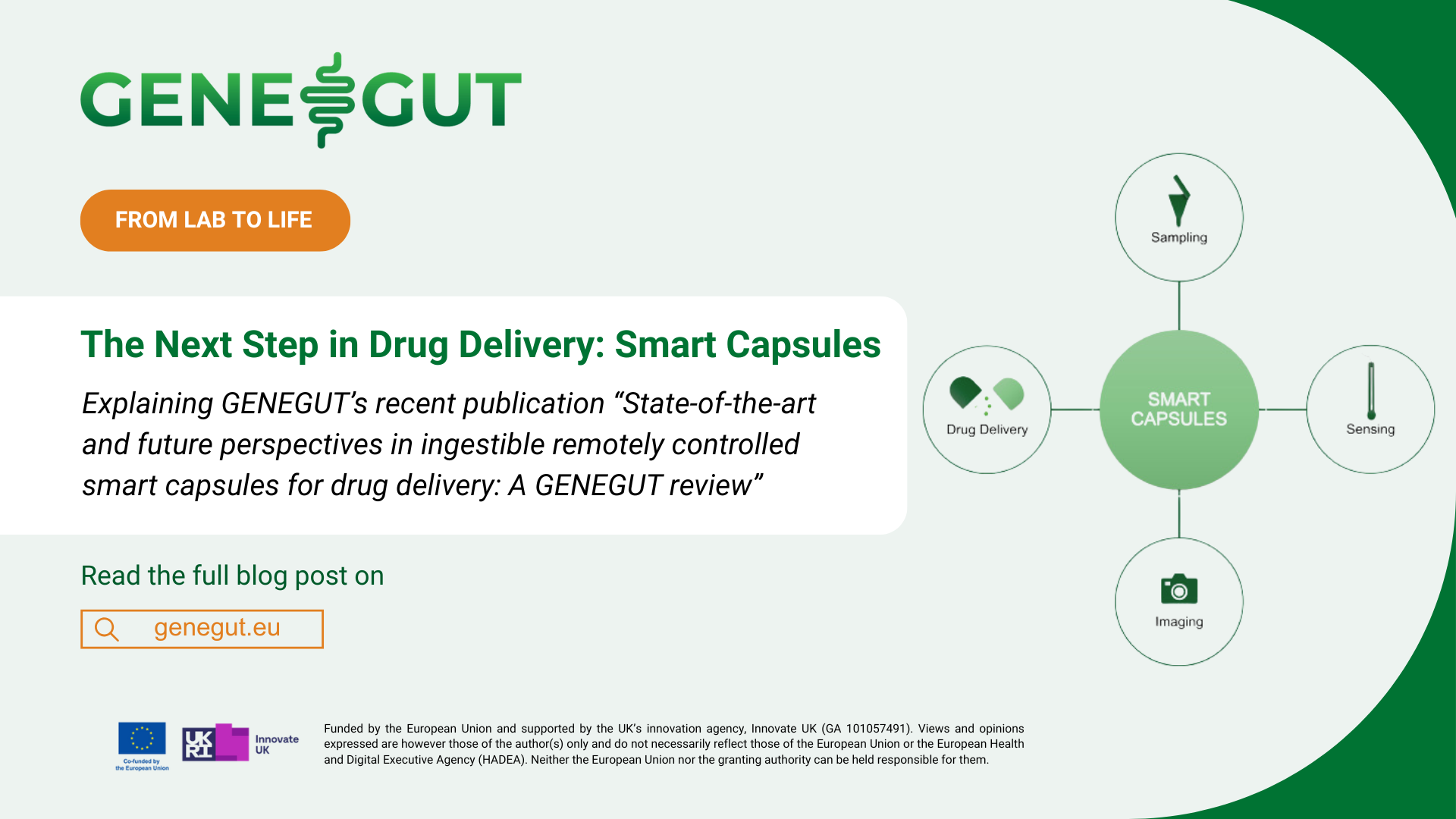This blog post was created as a companion piece to the scientific publication, “State-of-the-art and future perspectives in ingestible remotely controlled smart capsules for drug delivery: A GENEGUT review”. In line with GENEGUT’s mission to make science more accessible, the post breaks down complex research into everyday language. Whether you’re a patient, caregiver or simply curious about the future of medicine, this post is for you. By sharing our work in a clear and relatable way, we hope to open up the conversation and bring cutting-edge science closer to everyone.
Author: Sophia Hoffmann
Patients living with inflammatory bowel disease (IBD), including Crohn’s disease, know how disruptive and difficult it can be. The condition affects millions of people worldwide, causing chronic inflammation, pain and a major impact on daily life. While oral medicines are widely used to manage Crohn’s disease and work quite well for a lot of people, sometimes they fall short in treating the condition. One potential limitation is that in some patients, these medicines can release in the wrong place in the digestive tract – too early and it doesn’t get to the right site to be effective, too late and it may pass through the body without being released at all. This means that medications may not work as well as they could because they are just not getting to the right place.
Now imagine taking a pill that knows exactly where in your body it needs to go and only releases your medicine once it gets there. That is the vision behind a “smart capsules”. These tiny, swallowable devices are being designed to deliver medication with precision. Equipped with sensors, motors and wireless communication systems, smart capsules can be programmed or remotely triggered to release their contents exactly where and when needed. This can be very helpful for conditions like Crohn’s disease and ulcerative colitis, where precise treatment deep within the digestive tract is crucial. In our recent GENEGUT review, we explored the cutting-edge science behind these tiny tech-packed capsules.
Of course, there are still challenges. One important thing to keep in mind is cost. These capsules are packed with advanced technology, which makes them more expensive to produce than traditional pills. It is also important to remember that existing treatments do work well for a lot of people, especially in the early stages of IBD or when symptoms are under control. Smart capsules aren’t about replacing current medicines, but about adding a new option for when more targeted treatment is needed. That is why smart capsules are currently most suitable for delivering medicines that are both high-value and high-impact. For example, they could be ideal for newer treatments, like the RNA-based drugs being developed in GENEGUT. With these types of therapies, getting the medicine to exactly the right spot in the gut really matters.
Our recent review explored the state of the art in smart capsule design, from power supplies and release mechanisms to localisation strategies and future materials. While hurdles remain, ongoing innovation is rapidly bringing this technology closer to real-world application. The goal? To improve the way we treat digestive diseases by delivering powerful therapies directly to where they are needed most. Smart capsules offer a glimpse into the future of precision medicine for gut health and that future is getting closer every day.


